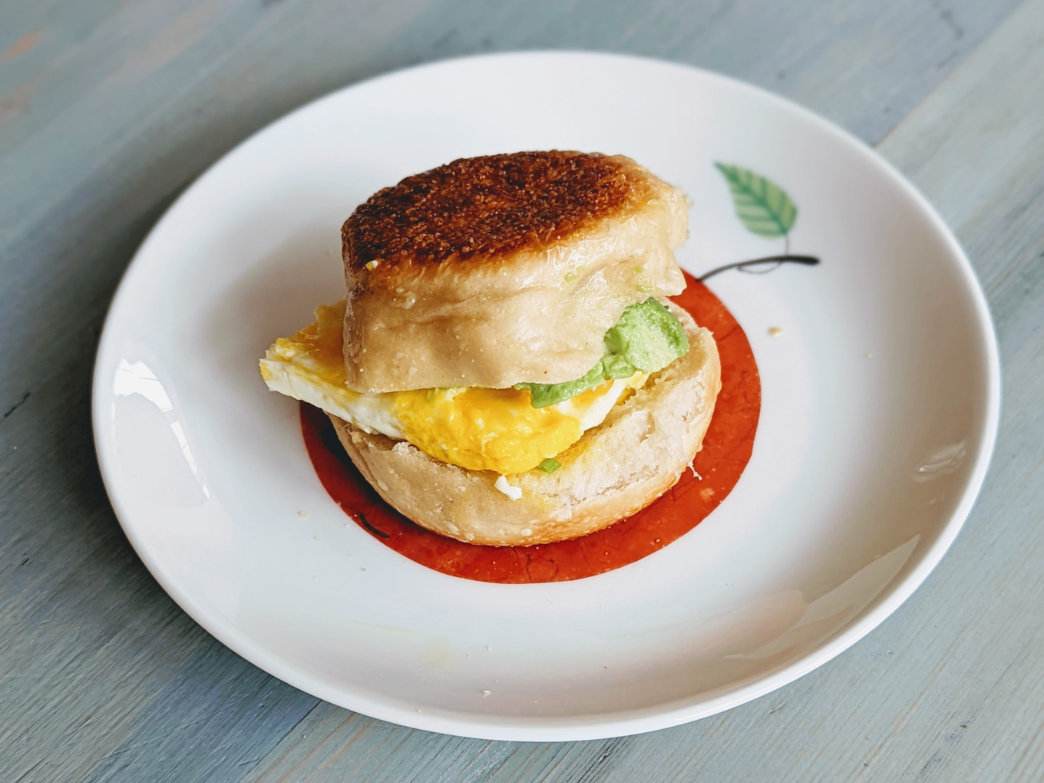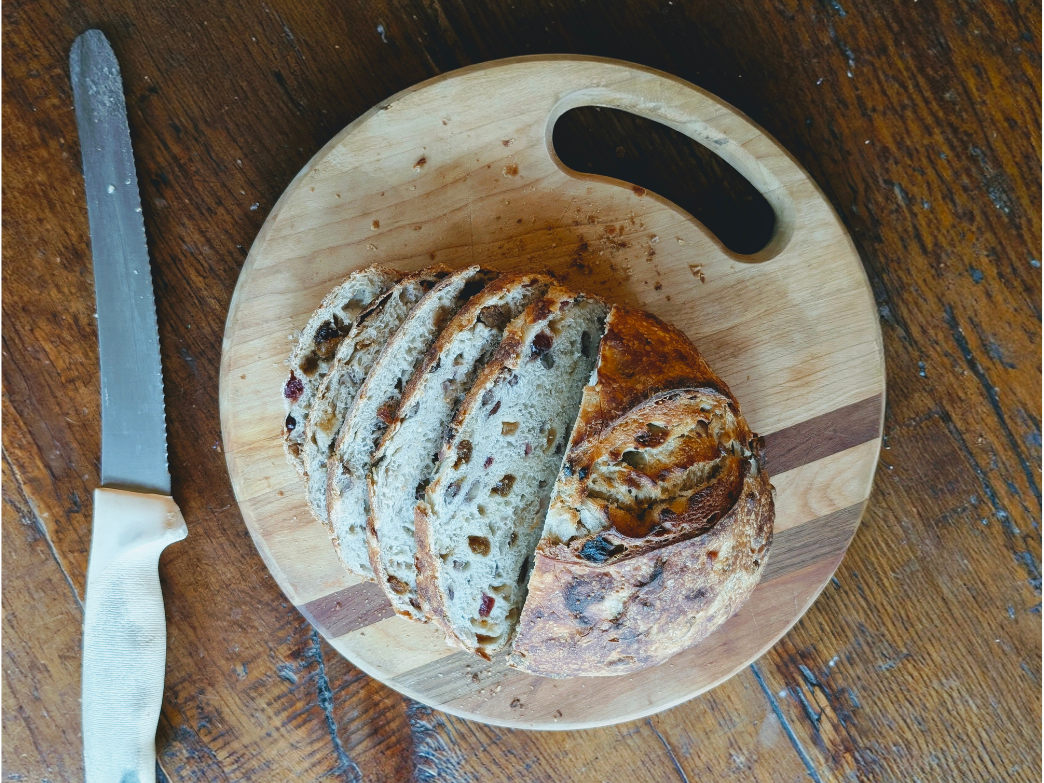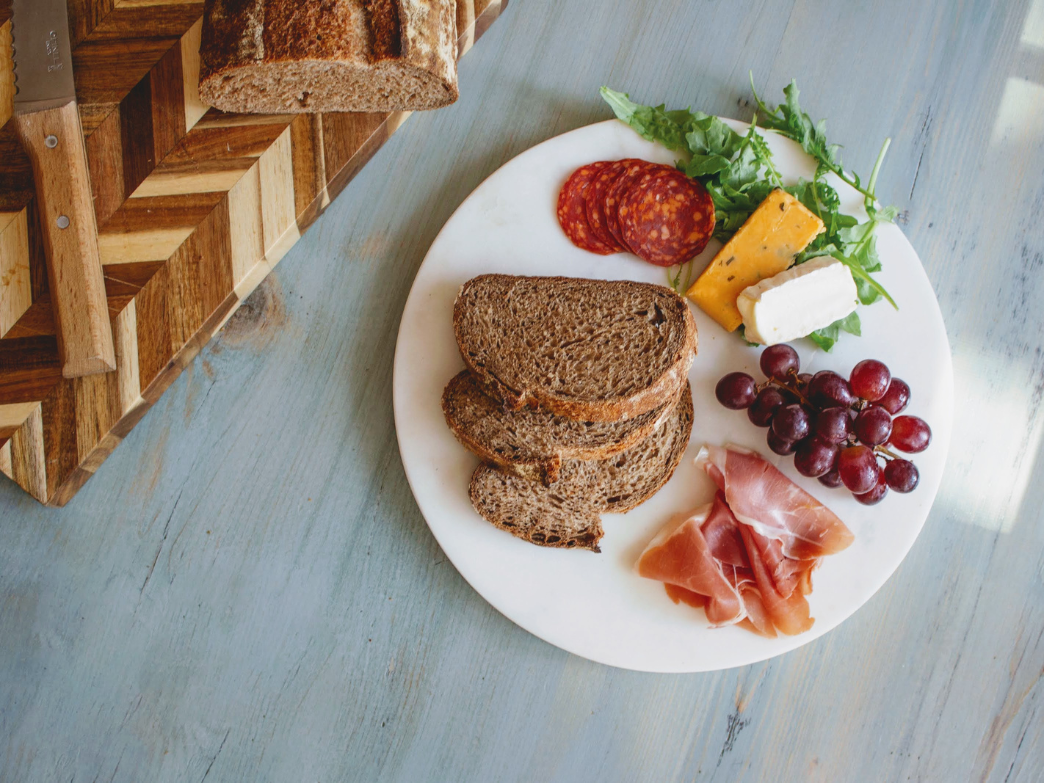By Johanna Hartzheim, CPO & Co-Founder | Reviewed by a Doctor of Nutrition (PhD)
What is an English muffin?
An English muffin is a small round bread, made from a soft dough that contains milk, butter, flour, sugar, eggs, and yeast. English muffins are made with bread flour, which has a high protein and gluten content, allowing for a soft, chewy texture. English muffins have a signature open structure that is perfect with eggs for breakfast or covered in peanut butter as a snack.
How do you make English muffins?
English muffins are typically made with bread flour, which is high in protein and creates the chewy texture that English muffins are known for. English muffin dough is soft and cooked on a griddle similar to how you would cook a pancake; however, the yeast causes the English muffin to rise, unlike a pancake.
What are the healthiest English muffins to buy?
The healthiest English muffins are whole grain English muffins. Whole grain English muffins contain only around 130 calories per serving and also have several important nutrients such as B-vitamins, manganese, and selenium. Selenium is an important antioxidant that helps regulate thyroid hormone production, manganese is essential for brain function and bone health, and B-vitamins are necessary for energy and brain health. In addition, English muffins provide 4.5 grams of fiber per serving – almost 3x as much fiber as English muffins made with refined flour. Fiber is key to slowing down digestion, helping you feel fuller longer and thus reducing appetite. Fiber intake is also important in digestive health leading to lower rates of colorectal cancer, while also reducing cholesterol.
What’s the best English muffin for eggs benedict?
When trying to find the best English muffin for eggs benedict, it is important to consider the size of the nooks and holes within the open structure of the muffin. English muffins that have larger nooks and holes will catch the butter, hollandaise, and creamy egg yolk better than English muffins with nooks and holes not as deep. In addition, if you are looking for an extra punch of flavor, try sourdough English muffins as a base for your eggs benedict.
What’s the difference between Bays English Muffins vs. Thomas’ Original English Muffins vs. Wolferman’s English Muffins?
Both Bays English Muffins and Thomas’ Original English Muffins have similar nutrition profiles, each with about 1 gram of fat, 27 grams of carbohydrates and 5 grams of protein per serving. In comparison, Wolferman's Original English Muffins have half a gram of fat, 47 grams of carbohydrates, and 9 grams of protein. However, when looking closer at the nutrition label, Wolferman’s English Muffins are around 2 times the size of Thomas’ Original English Muffins and Bays English Muffins, which is likely why the carbohydrates and protein are doubled. From a health perspective, however, the Wolferman's English Muffins are double the size, but half the fat, so if you are looking for a lower fat option, opt for Wolferman’s.
What is the best English muffin brand?
English muffins have a superior flavor to Wolferman’s, Thomas’ Original English Muffins, and a few other brands. Bays English muffins were found to have a balance of moist, flakey, and crunchy textures. Epicurious found that this balance was what helped Bays English Muffins pair well with both sweet and savory options. Epicurious did not include Wildgrain English muffins in their taste test, but we’re confident if they had, they would have found that Wildgrain English muffins are the best English muffins!
Where can I buy the best English muffins online?
At Wildgrain, we specialize in making high-quality, fresh baked goods that are delivered directly to your door. Wildgrain is the first bake-from-frozen delivery subscription service for breads, rolls, pastries, and fresh pastas. Some of our best items sold online include English muffins and croissants. Learn more about Wildgrain and our artisanal baking and cooking methods.
About the Author
Johanna Hartzheim is the Chief Product Officer and Co-Founder of Wildgrain.
This content is for informational use only and does not replace professional nutrition and/or medical advice, diagnosis or treatment. It is not a substitute for and should not be relied upon for specific nutrition and/or medical recommendations. Please talk with your doctor about any questions or concerns.



